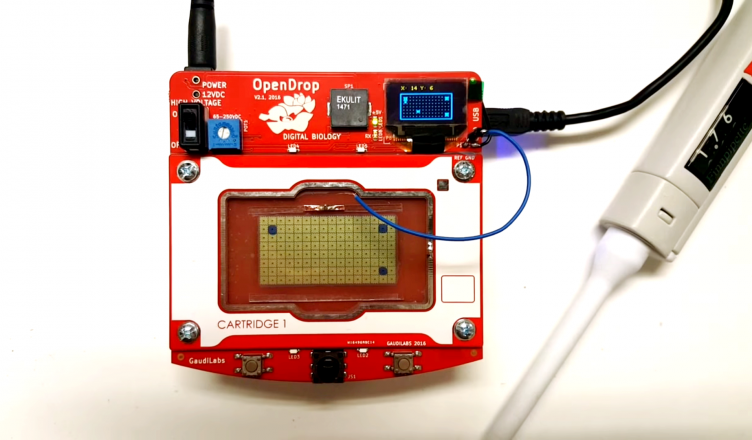With the experience from the first version of OpenDrop we discussed requirements and improvements for a next step. At a community meeting in the wonderful Rural Hub in Italy we sketched out the design and features.
The design for OpenDrop V2 is implemented and first prototypes were demonstrated at the Digital Biology community meeting in Berlin, January 2016.
Features:
– 2x High Voltage Driver Chip HV507
– 16×8 electrodes array, 2.75mm2 in size
– Arduino Micro
– 4 buttons
– tiny OLED Display
– WIFI module
– fancy LEDs
– Liquid connection ports
– prepared for Peltier Element / Sensors / Pad Heating
– micro USB
– 10×10 cm PCB
– NixiePSU (voltage readable or controllable)
– Design on open source KiCAD
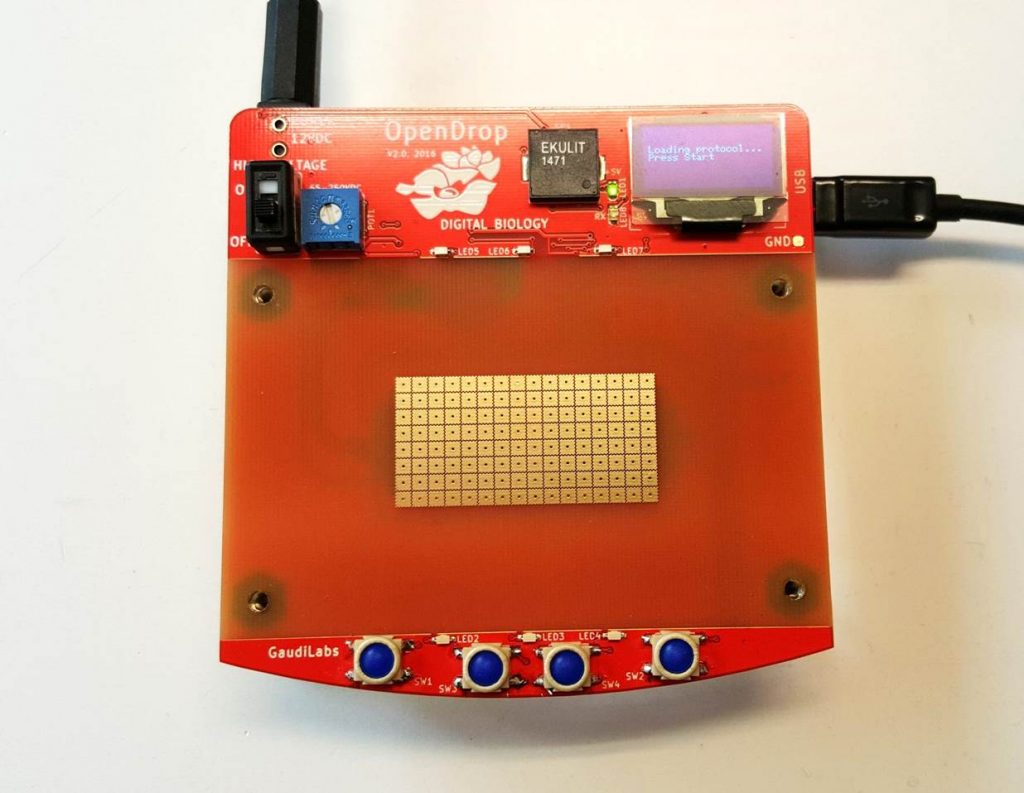
Picture of first OpenDrop V2 prototype.
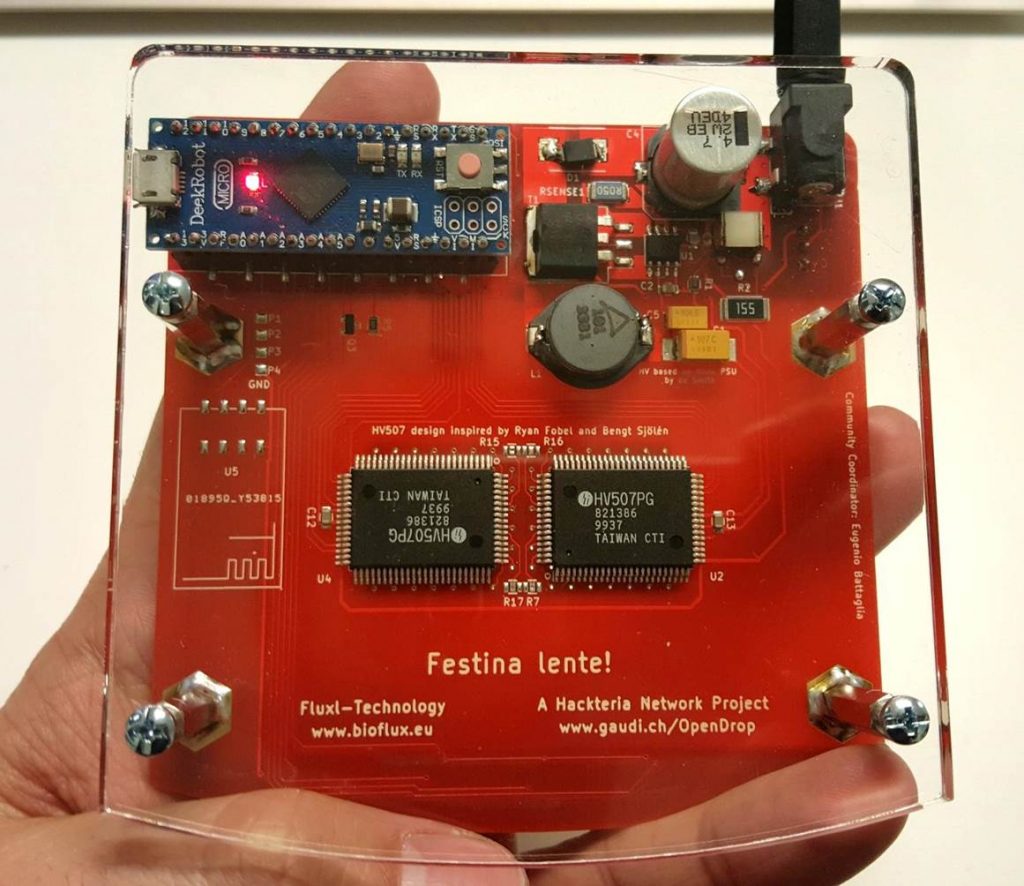
Backside of OpenDrop V2 with Electronics
Design Files
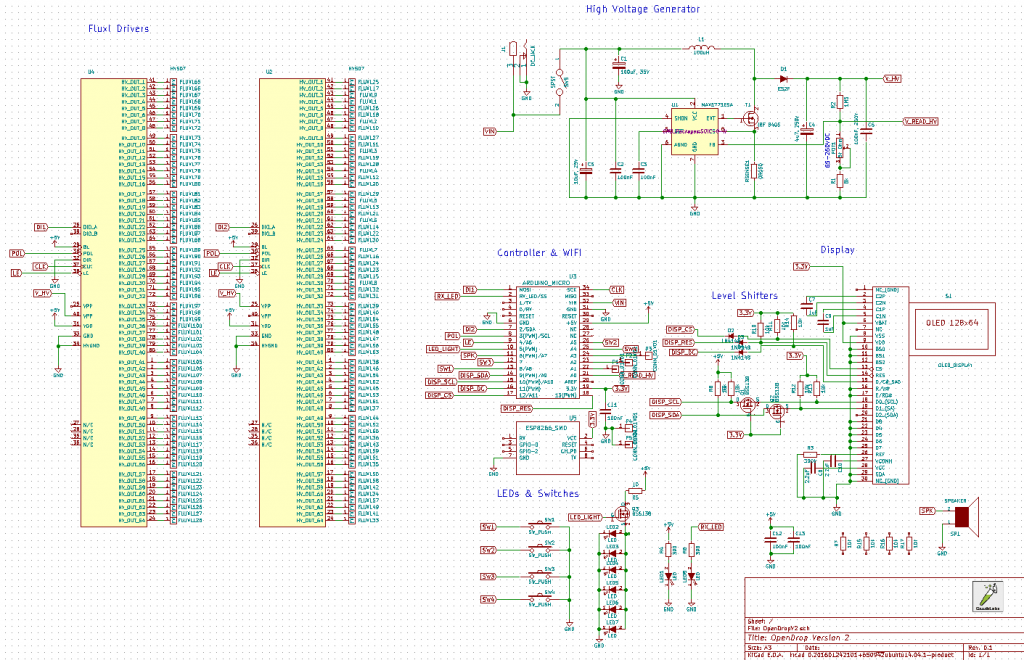
The first prototype of the OpenDrop V2 is very promising and the concept with the integrated driver chips and bigger array area were demonstrated. We are now working on producing a small batch to distribute in our research network and continue the research.
Version 2.1 (ESP-01)
In the current Version 2.1 the following changes and bugfixes have been implemented.
– External connector for HV Bus
– Feedback amplifier for controlled droplet movement
– Joystick instead of buttons (analogue coding with resistors)
– HV chips in series
– HV Footprint slightly bigger
– Invert potentiometer direction
– Connect BL pin of HV507 instead of POL
– C8 / C11 labeling inverted
– footprint of c6 to small and to close to the potentiometer
– Buttons labeled
– SO8 and Button footprint corrected
– Micro Arduino socket colliding with other parts fixed
– Indicate direction on D1, footprint too large
– Bigger margin for housing
– Fiducials added for automated assembling
– Wifi modul connected

Find all the KiCAD design files in the GitHub repository
https://github.com/GaudiLabs/OpenDrop
Not implemented yet:
– Add connectors for “sensor extension sields”
– HV measurement
Speculative Product Package
In the OpenDrop development work we use methods of critical design, speculating about how things could be—to imagine possible futures. We make proposals to challenge assumptions and existing conceptions. We are open for debates and discussions about the kind of future people want (and do not want).
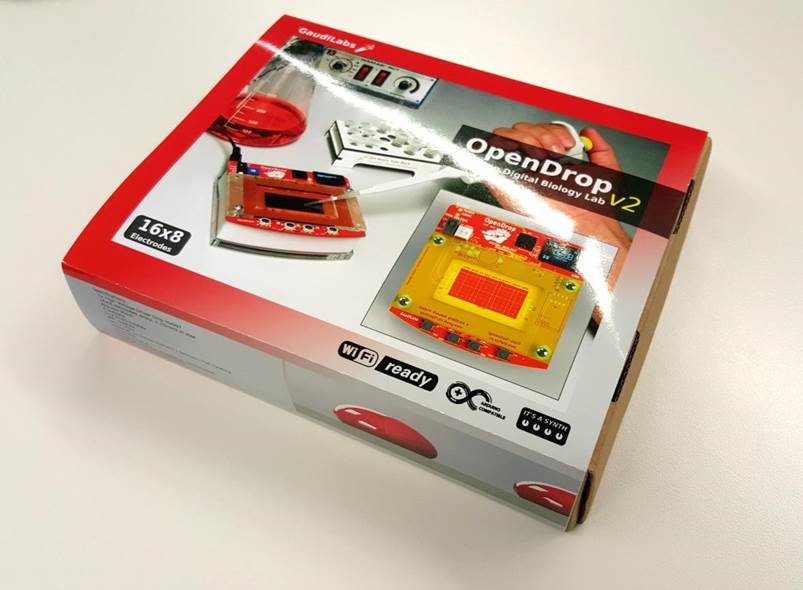
Speculative Product Design of an Digital Biology Lab
Small Batch Production
The OpenDrop device should serve as research and development platform. To provide researchers interested in working with the system we produced a small batch of devices. The OpenDrop V2 were produced in the OpenFactory at R2 Productions in Switzerland.
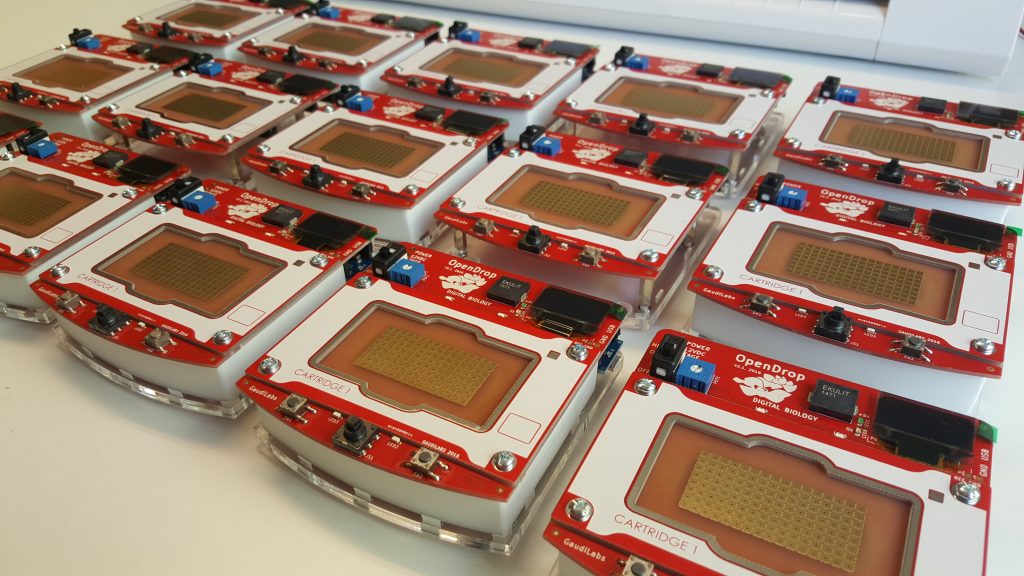
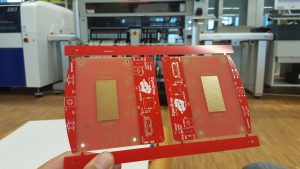
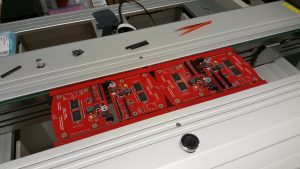
Production on a high-end pick&place machine.

